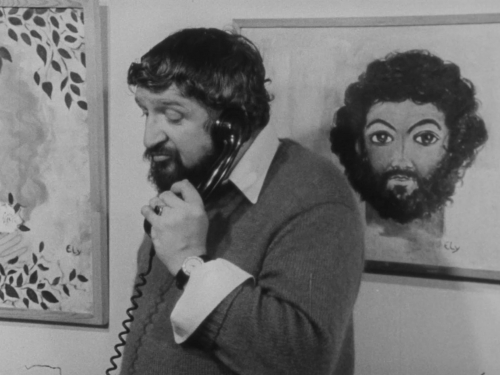Tonight, La fugue de Suzanne is available free of charge on Avila between 7 pm and midnight.
In these coronavirus times, we miss cinema. Not just the big screen and full sound, we miss being together. That is why KASKcinema has set up a virtual alternative, KASKcinema Uncut: Watching Apart Together.
On 20 May, Sabzian and KASKcinema Uncut are hosting the seventh Seuls film evening online, with a digitalised version of Jean-Marie Buchet’s La fugue de Suzanne, based on the last existing celluloid copy of the film. La fugue de Suzanne is a rare gem in Belgian film history, self-financed by the director and creating an absurdistic reality with minimal cinematic gestures.
Jean-Marie Buchet was born in Jemappes in 1938. After studying film at La Cambre (Institut Supérieur des Arts Décoratifs), he directed several short films before finishing his first feature-length film in 1974, La fugue de Suzanne. In 1979, he presented Mireille dans la vie des autres at the International Film Festival in Moscow. He regularly collaborated with filmmakers such as Patrick Van Antwerpen and Boris Lehman, and he participated in films by Jan Decorte as an actor, editor and sound engineer. Between 1996 and 2009 he contributed to the film magazine Grand Angle. He also worked in the film restoration department of the Royal Belgian Film Archive for several years.
On 20 May, on the evening of the screening, an introduction to the film will be posted on KASKcinema’s Facebook page. You will be able to watch La fugue de Suzanne for free between 7 pm and midnight on Avila here. The film will remain available to rent on Avila afterwards.
Seuls. Singular Moments in Belgian Film History is a series of film programs accompanied by the publication of unique texts by Belgian filmmakers and writers on Sabzian’s website. It is often said that cinephiles don’t know or are rarely appreciative of their own national cinema. Film critic Adrian Martin “observe[s] a very intriguing dimension of cinephile thought: namely, the usually feisty way it negotiates a fraught relation with the cinephile’s own national cinema. Indeed, I sometimes think I can spot a cinephile by the intensity of their hatred for their national cinema.” With this series of film evenings, Sabzian aims to chart the wayward landscape of Belgian cinema with images, sounds and words, by means of an affectionate countermovement.


